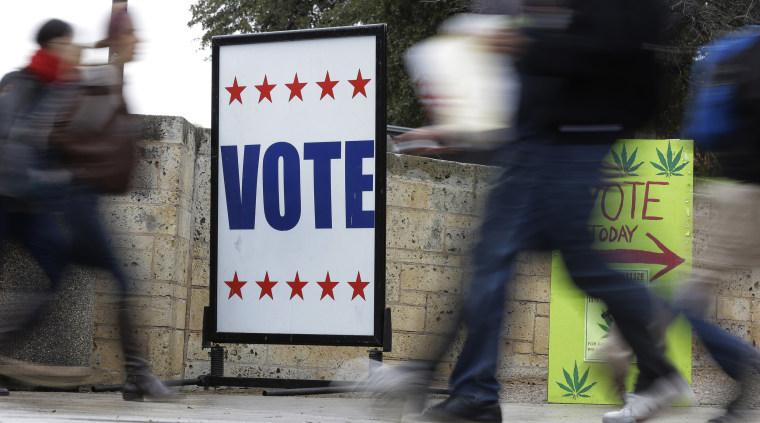For a significant number of potential 2016 voters, immigration policies are not an abstraction but have a direct impact for their loved ones.
As many as 1.5 million U. S. citizen relatives of immigrants awaiting deportation relief under the president's stalled executive action program will be eligible to vote for president next year, a new study reports, and their votes could have an impact in battleground states.
By 2020, that number will increase to 2.25 million, as more children and family members reach voting age.
The Center for American Progress, a progressive think thank, found that 6.3 million U.S. citizens live in the same households as relatives who would qualify for protection from deportation and work permits under Deferred Action for Parents of Americans and Lawful Permanent Residents, or DAPA.
DAPA is a program authorized by President Barack Obama to temporarily shield millions of immigrants here illegally from deportation and allow them to work. To be eligible for DAPA the immigrants must be parents of children who are U.S. citizens or legal permanent residents. A lawsuit filed by the state of Texas and joined by other states has stalled the relief.
Manuel Pastor, one of the authors of the report, said these U.S. citizens of or reaching voting age likely have strong and personal connections to their DAPA-eligible relatives. Therefore, he said, they may be “highly motivated” to learn about the candidates’ positions on the DAPA program.
“I think when people think about DAPA, they think about the effects on the parents themselves—the undocumented immigrants—and what they forget is that those folks are embedded in families,” Pastor said. “It’s important to remember that whatever affects undocumented folks actually touches people who are citizens and can vote.”
The vast majority of U.S. citizens living with relatives who would qualify for DAPA are Latino, 82 percent. Asian American and Pacific Islanders follow at 8 percent.
Pastor said that as in past elections, these two groups of voters likely will view immigration as a “threshold issue” that determines whether or not they perceive a candidate is on their side.
So far in the presidential race, most Republican presidential candidates have come out against DAPA and believe President Obama overstepped his powers when he authorized the program last November.
Meanwhile, the Democratic presidential candidates have said they support it.
Pastor said he doesn’t think the report findings will cause Republican presidential candidates to change the way they feel about DAPA, despite evidence that there could be political consequences.
What he does think the report may do, however, is “strengthen some of the folks who’ve been interested in DAPA and who’ve been more supportive.”
“It also might give a little bit of wind to someone like Jeb Bush who’s been a bit more open to the idea of talking about immigration reform,” he said. Bush, however, has opposed Obama's use of executive action to bypass the GOP in Congress and authorize DAPA.
DAPA-sensitive voters could have the biggest political impact in battleground states where they will make up sizeable and potentially decisive portions of the electorate by 2016 and 2020.
One of those states is Florida, where President Obama won by about 74,000 votes in 2012.
Next year, DAPA-affected voters may cast nearly 60,000 votes in the state. And by 2020, that number will rise to about 85,000, exceeding Obama’s 2012 margin of victory, according to the report.
Five other battleground states where DAPA-affected voters could have a big impact in the 2016 election are Nevada, Colorado, North Carolina, Arizona and Georgia.
In all of these six states, voters will be considering not only presidential candidates, but also candidates for U.S. Senate races, many of which are expected to be close. The result of these races could determine which party takes control of the Senate.
The report may be conservative in assessing the impact of this group of voters, Pastor said.
The totals don't include U.S. citizens who are relatives or friends of DAPA-eligible individuals and who live in separate households.
"These are definitely under-estimates because we’re not looking at folks who don’t live in the same households as DAPA-eligible individuals,” he said. “So potentially the potential electoral consequences may be bigger.”
The report also found that the vast majority of DAPA-affected U.S. citizens are children who are under the age of 18 and thus not eligible to vote yet; at least 4 million of these U.S. citizen children will turn 18 by 2032.
Though these young U.S. citizens can’t vote now, Pastor said, they will be able to vote in the future. In the meantime, they may take notice of how certain candidates or parties speak about immigration and their undocumented family members, and that could shape their future voting patterns.
“Often a person’s initial voting pattern sort of sets their voting pattern for the rest of their lives,” he said.
